
Rising protectionism will not affect APEC
Latest
| TIN LIÊN QUAN | |
| APEC forum helps SMEs enhance digital competitiveness | |
| APEC SMEMM 2017 enhancing MSME competitiveness and innovation | |
One of Vietnam’s major initiatives, brought to the table during the third APEC Senior Official’s Meeting (SOM 3), is the promotion of inclusive development across economic, financial and social fields. What are your thoughts on this initiative?
This initiative is part of the four priorities that Vietnam and other member economies have been working on since the end of 2016 for this year’s APEC forum. It has received the support and participation of many other APEC member economies.
At the Symposium on Promoting Economic, Financial and Social Inclusion in APEC on August 28, member economies gathered to discuss three major dimensions of inclusion – economic, financial and social. Experts at the symposium stressed the interconnectedness and spillover effect among these three pillars. At the same time, achievements in economic, financial and social inclusion among member economies were underlined, as were outstanding challenges that need to be resolved.
Overall, when measuring inclusiveness based on these three pillars, APEC member economies have made significant improvements. However, there are still many challenges to overcome, considering that the growth level is just a little above average compared to the rest of the world.
If we take the example of financial inclusion; 60% of the world's adult population has a bank account. In APEC the number stands at around 69%, higher than the global average. This proves that there is still room for improvement.
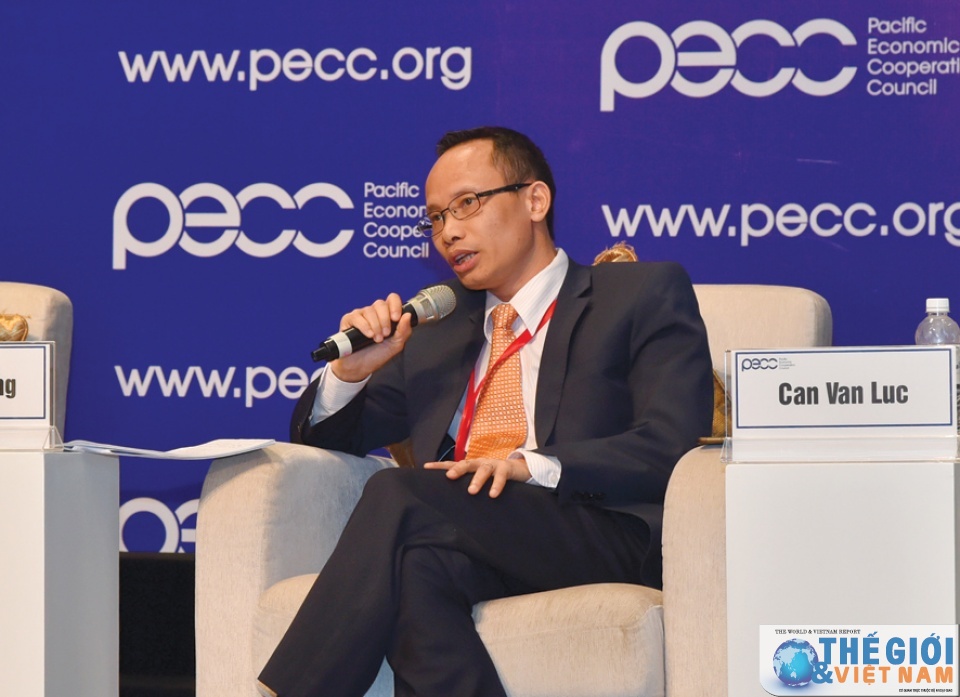 |
| Dr. Can Van Luc, senior advisor to the Chairman and SEVP of BIDV. |
On the other hand, income inequality and inequality in economic, financial and social services is still relatively high, and rising. A recent study by the Organisation for Economic Co-operation and Development (OECD) showed that even though the gap between rich and poor countries has narrowed, the gap within each country is growing. Therefore, each country has to solve their own internal disparity, specifically by reducing income inequality and the gap between rich and poor within economic sectors.
The symposium hosted by Vietnam is a great opportunity for member economies to continue working on tasks that were brought up at the beginning of the year, and lay the foundations for the APEC High-level week, set to take place in Da Nang in November.
Among APEC member economies, Vietnam is known for its successful promotion of comprehensive growth in economic, financial and social fields. However, Vietnam still has a lot of work to do. For example, in order to have more inclusive economic growth, we must further promote access to social services, improve the capacity of small and medium enterprises and narrow the gap between rural and urban areas.
Looking to financial inclusion, there is obvious room for improvement. Currently, the number of adults with a bank account in Vietnam is only around 40%, lower than the average for the Asia Pacific region.
With regards to social inclusion, the ability of all social groups to access services, especially the country’s social security system, is still lagging. Additionally, Vietnam needs to pay more attention to vulnerable groups such as women, the disabled and students. Particularly, the participation of women in governance and business leadership must be further promoted.
Finally, inclusive growth must be consistent with sustainable development, thus environmental protection must be given adequate attention.
You have mentioned the challenges that still face APEC and Vietnam, so what are the prospects of achieving APEC’s inclusive growth goal?
Overall, the prospects are good, because all member economies have found a common voice. During previous agendas, member countries have agreed on priorities – to focus on reducing income and wealth disparities, narrowing the gap between economies and strengthening connectivity for mutual development.
I believe that through practical programmes and activities, regional economies will come to a consensus and offer a specific long-term roadmap. This is also a very important element of the APEC Vision 2030, which is currently under discussion, as well as the final document for the upcoming High-level Meeting in Da Nang.
While APEC member economies are working to promote globalization, free trade and investment, populism and protectionism are on the rise. Will this phenomenon hinder the implementation of inclusive growth objectives among APEC economies?
This is one of the many important issues that APEC agendas have mentioned as a challenge. However, in my opinion, this trend will not affect APEC since all member countries have agreed to continue the promotion of free trade at APEC SOM 3 in Ho Chi Minh City.
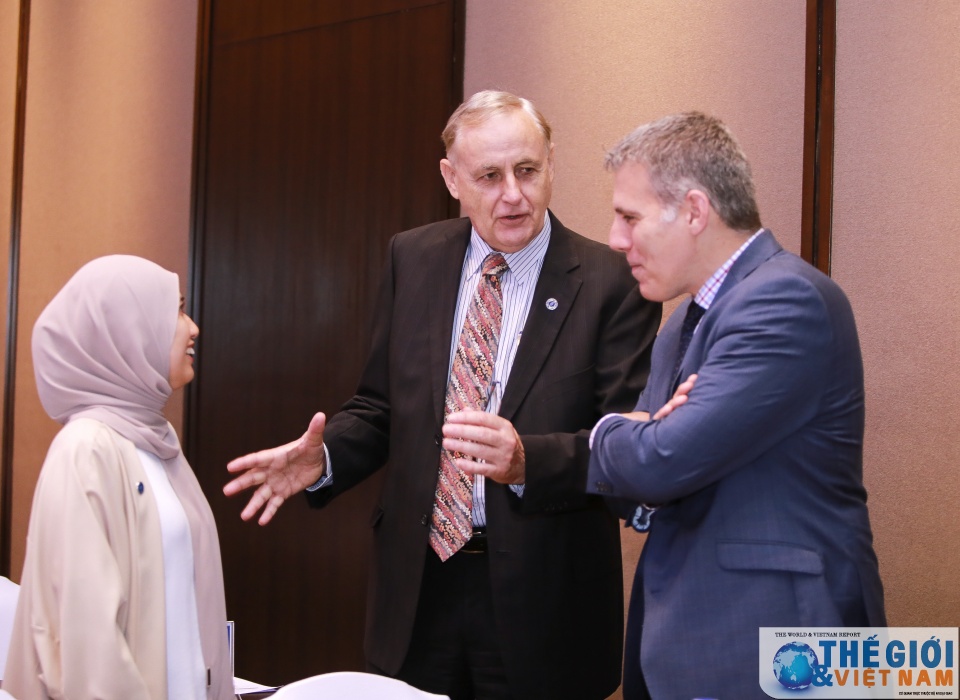 |
| Delegates at SOM 3 in Ho Chi Minh City. |
It is clear that free trade has helped to reduce income inequality and the development gap between countries. It has also created job opportunities and motivation for economic growth in each APEC member economy. Taking the example of Vietnam, thanks to free trade, the country boasts a more open economy with total trade accounting for 170% of GDP, and foreign direct investment (FDI) also playing an important role.
I think that APEC member countries should persist in the pursuit and promotion of free trade. Furthermore, they should pay attention to market development and support improvements to the competitive capability of small and medium enterprises.
What do you think of the US’ commitment to free trade?
I think the US is still probing the situation and during the SOM conferences, the US delegation contributed some good ideas. Basically, they will not buck the trend of trade liberalisation. However, the US is seeking to renegotiate a number of agreements to ensure fair trade and better serve the US economy. I think this is a specific decision taken by the US administration and other countries should respect it.
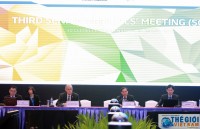 | APEC commits to trade and investment liberalisation The Third APEC Senior Officials Meeting (SOM 3) opened this morning in Ho Chi Minh City aiming to push up trade liberalisation and inclusive growth. |
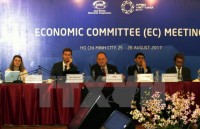 | Host Vietnam makes good impressions in APEC SOM3 Delegates to the third APEC Senior Officials’ Meeting (SOM3) and related meetings, which are scheduled to conclude in Ho Chi Minh City on August 30 ... |
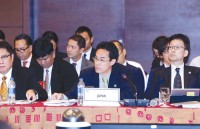 | Finding common voice in achieving Bogor goals In achieving the Bogor goals, Japanese SOM leader Mr. Tsutomu Koisumi, Deputy Director-General of Economic Affairs Bureau (Japanese Ministry of Foreign Affairs) holds the view ... |

















